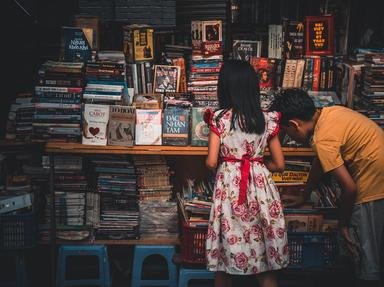Quiz Answer Key and Fun Facts
1. Most English language poetry will be built around a pattern of words that sound alike. What is this pattern called?
2. What poetic device is used when two things or ideas are directly compared without using the words "like" or "as" (example: "that dog is a shredder")?
3. Personification is being used when something that is not human is described as having human traits through a metaphor (ex: "he stared at the sky, which stared back at him").
4. Some poets will consider the way that their poem looks on paper as an important part of the poem, and may choose to break the poem up into smaller sections of a few lines each. What are these sections called?
5. "Crash", "Squeak", and "Roar" are all examples of what kind of word?
6. "Epic poetry" is the term used to describe any poem which deals with people doing impressive things.
7. What Japanese poetic form always contains three lines of 5, 7, and 5 syllables, respectively?
8. Which of these phrases is an example of an oxymoron?
9. Blank verse doesn't have to rhyme, but must be written in a particular syllabic pattern. What is that pattern called? (It is closely associated with Shakespeare, who always wrote in it.)
10. What style of poetry has no particular rhyme scheme or syllable pattern?
Source: Author
OddballJunior
This quiz was reviewed by FunTrivia editor
looney_tunes before going online.
Any errors found in FunTrivia content are routinely corrected through our feedback system.
